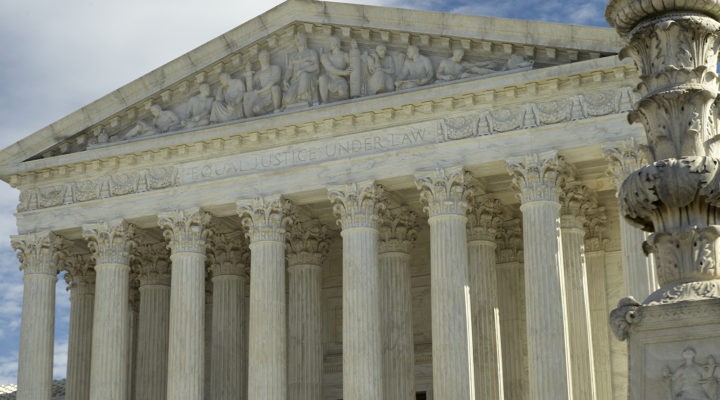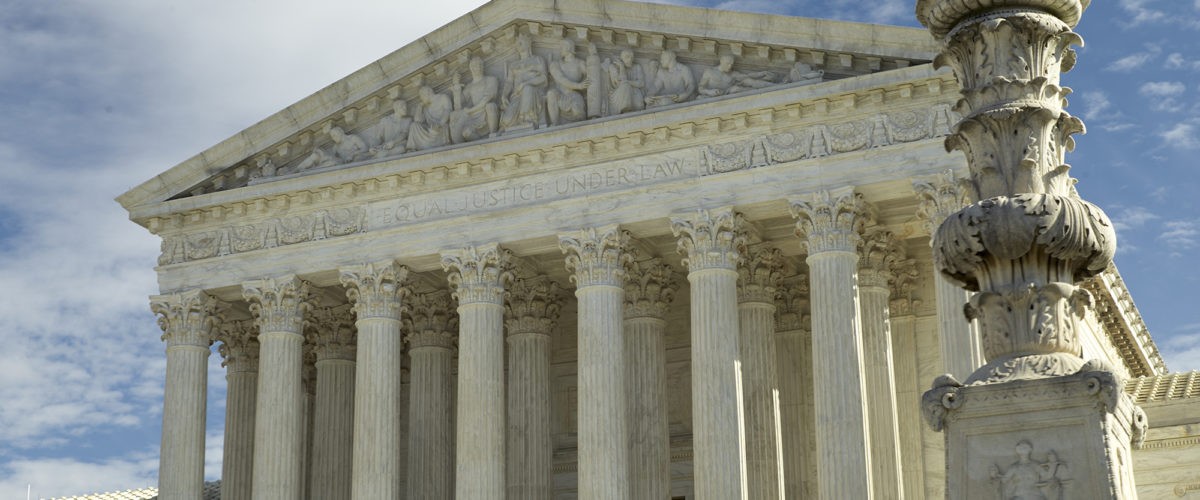In an 8-1 opinion, the United States Supreme Court March 24 ruled that a Texas Death Row inmate should be allowed to have his Baptist pastor accompany him into the execution chamber, lay hands on him and pray audibly over him while the state kills him.
Technically, the high court’s decision in Ramirez v. Collier remands the case of John Ramirez back to a lower court, but the net effect of the ruling is to say that the state of Texas has unreasonably restricted the religious freedom of a Death Row inmate.
“We think Ramirez is likely to succeed in proving that his religious requests are ‘sincerely based on a religious belief,’” says the majority opinion written by Chief Justice John Roberts. “Ramirez seeks to have his pastor lay hands on him and pray over him during the execution. Both are traditional forms of religious exercise.”
“Ramirez seeks to have his pastor lay hands on him and pray over him during the execution. Both are traditional forms of religious exercise.”
The pastor in question is Dana Moore of Second Baptist Church in Corpus Christi, Texas. Justice Roberts explains that “Pastor Moore, who has ministered to Ramirez for four years, agrees that prayer accompanied by touch is ‘a significant part of our faith tradition as Baptists.’ And neither the district court nor the court of appeals doubted that Ramirez had a sincere religious basis for his requested accommodations.”
Yet Texas officials refused to accommodate this religious practice, Roberts says, detailing a long sequence of events that preceded the current question.
After an earlier delay, Texas scheduled Ramirez’s execution for Sept. 9, 2020. “Ramirez then asked to have his pastor accompany him into the execution chamber,” Roberts explains. “Prison officials denied the request. They did so because, at the time, Texas’ execution protocol barred all spiritual advisors from entering the chamber.
“A prior version of the protocol had allowed access for prison chaplains. But Texas employed only Christian and Muslim chaplains. In 2019, when a Buddhist inmate sought to have his spiritual advisor join him in the execution chamber, Texas declined to grant the accommodation. We stayed that execution pending certiorari, unless the state allowed a Buddhist spiritual advisor into the execution chamber. In response, Texas amended its execution protocol to bar all chaplains from entering the execution chamber, so as not to discriminate among religions.”
Ramirez filed suit, arguing that Texas’ new execution protocol violated his rights under the First Amendment and the Religious Land Use and Institutionalized Persons Act. Then Texas postponed the execution again.
A new execution date was set for Sept. 8, 2021. Ramirez filed a formal grievance asking that he “be allowed to have (his) spiritual advisor present in the death chamber.”
Roberts explains: “Texas again denied the request, but later changed course, amending its execution protocol to permit a prisoner’s spiritual advisor to be present in the execution chamber.” That change appears to have been motivated by the Supreme Court’s ruling in a separate 2020 case, Gutierrez v. Saenz, and a 2021 case, Dunn v. Smith.
“Both cases concerned prisoner requests to have a spiritual advisor present in the execution chamber. And in both cases, we declined to allow the executions to proceed unless the inmate was granted that accommodation,” Roberts says.
What Texas would not allow, however, is for the spiritual advisor to be closer than 3 feet in proximity to the condemned or to pray aloud as Ramirez desired.
“As for audible prayer, there is a rich history of clerical prayer at the time of a prisoner’s execution, dating back well before the founding of our nation.”
The chief justice recounts various iterations of Texas policy on spiritual care for those being executed as well as a review of British and American history on the subject.
“As for audible prayer, there is a rich history of clerical prayer at the time of a prisoner’s execution, dating back well before the founding of our nation,” Roberts explains. “For example, at Newgate Prison — one of London’s most notorious jails — an Anglican priest would stand and pray with the condemned in their final moments.”
Even recent federal executions have allowed the kinds of spiritual care the state of Texas will not grant Ramirez, Roberts says, adding: “Texas itself appears to have long allowed prison chaplains to pray with inmates in the execution chamber, deciding to prohibit such prayer only in the last several years.”
No one, including Ramirez himself, disputes the heinous nature of Ramirez’s crimes. The question centers only on a prisoner’s rights to religious freedom in the final moments of life. And on that point, the high court majority said the state of Texas has no compelling interest to deny Ramirez such spiritual care.
The court opinion goes into explicit detail about the nature of death by lethal injection as practiced by Texas. Roberts addresses specifics of sounds in the room and placement of other persons in the room and the line of sight needed by executioners administering the lethal drugs.
Texas argues “that allowing the pastor to touch Ramirez in the execution chamber might lead to preventable suffering,” Roberts explains. “The theory is that Pastor Moore might accidentally jostle, pinch, or otherwise interfere with an IV line, and that this in turn might affect the administration of the execution drugs in a way that results in greater pain or suffering. We think that preventing accidental interference with the prison’s IV lines is a compelling governmental interest. But we also think it is one reasonably addressed by means short of banning all touch in the execution chamber.”
Justice Clarence Thomas wrote a lengthy and passionate dissent to the majority opinion, retelling in detail the nature of Ramirez’s crimes and accusing the inmate of attempting to manipulate the legal system to delay his execution.
“Unsurprisingly, death-row inmates generally employ any means available to stave off their sentences and therefore often engage in abusive litigation,” Thomas declares.
Thomas goes so far as to say of Ramirez in particular: “The evidence that demonstrates Ramirez is bringing abusive litigation to delay his execution also strongly suggests that he does not sincerely believe that his pastor needs to touch him in the execution chamber.”
Thomas also disagrees with the court majority, which found that Ramirez did follow proper prison and legal protocol to make his requests regarding spiritual care at the time of execution.
Seth Kretzer, a Houston lawyer who spoke on behalf of Ramirez at the Supreme Court, issued a statement soon after the verdict was announced.
“The Supreme Court clarified that the rule of law is as ubiquitous as God. Both exist everywhere and always — high up in the hallowed halls of power and down low in the hell of the execution chamber,” he said. “Banning prayer by clergy members will not be permitted under the American legal system in even the most dejected square foot of this country.
“We look forward to prevailing in the forthcoming litigation about the issue of whether Mr. Ramirez’s pastor may safely touch him during execution just as prison-employed chaplains have done in every execution over the past 37 years. After an 8-1 Supreme Court loss, the time has come for the State of Texas to end its failed, taxpayer-funded battle against prayer.”
Related articles:
The death penalty is dying a slow death; it’s time we pull the plug | Analysis by Stephen Reeves
What I learned working in a Texas prison: Retribution, not reformation | Analysis by Michael Chancellor


